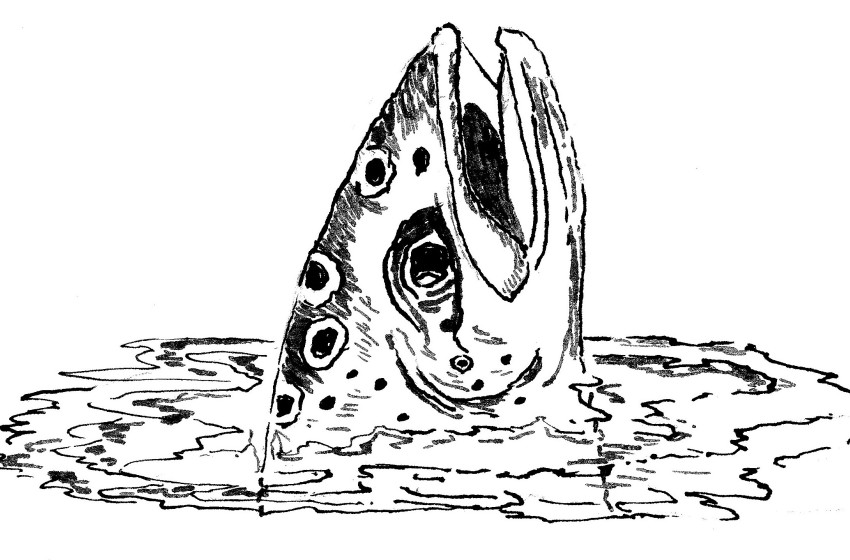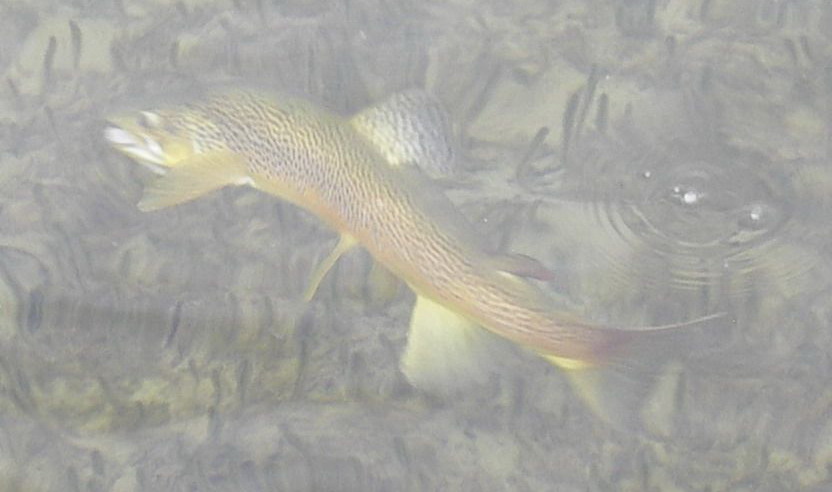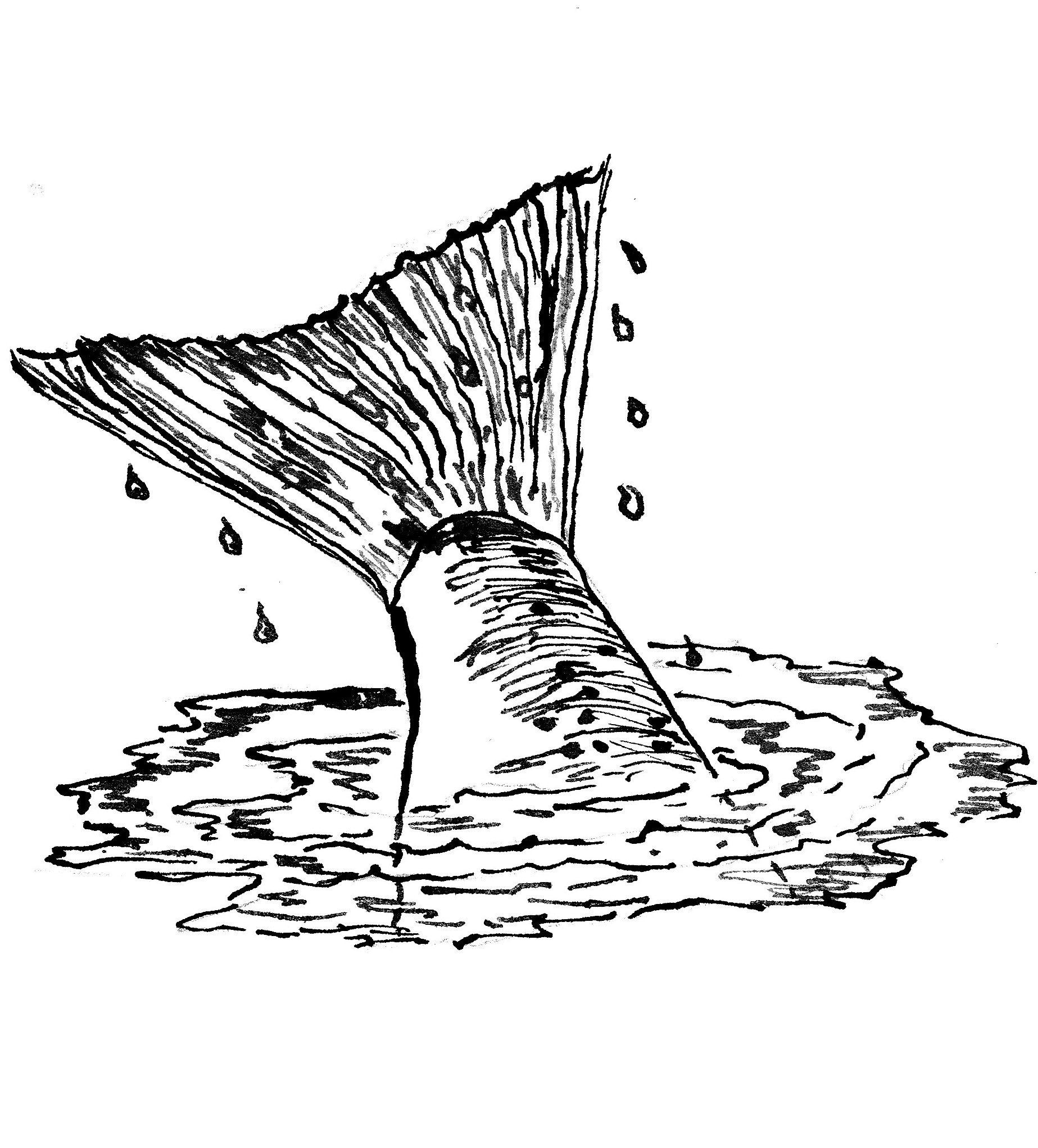Hugh Creasy Column for Reel Life December 2019
- 23/12/2019
- Richie Cosgrove

Mayflies, sails set, scudded through the shallows, a flotilla with wings drying in the sun.
Soon they would fly. In the shallows they were safe, though a change in wind direction would drive them into deep water and danger.
Bullies darted about beneath them, perhaps taking nymphs as they rose from the stony bed.
On the boulders above water there were shucks of stoneflies, hollow shells of creatures flown, and in the backwaters drowned terrestrials – moths and beetles, bees and flies – floated in a soupy scum.
These were the riches of the river, signs of its health and its ability to sustain life.
As the river’s flow neared urban centres and progressed through farmland, its health deteriorated, and the life forms that reflected clean, well-oxygenated water were replaced by those that were able to survive in near-death conditions.
Many of the factors that lead to ill-health in a river are purely accidental.
A petrol station or a garage washes down its forecourt and sends a soapy scum into a drain that leads to a stream that leads to a river.
A painter washes his brushes under a tap and pollutes the groundwater.
A car owner washes down his car with powerful soaps and detergents that have the same effect.
 These seemingly innocuous activities which so many of us take for granted have a multiplying effect that destroys the health of water and leads to destruction of habitat.
These seemingly innocuous activities which so many of us take for granted have a multiplying effect that destroys the health of water and leads to destruction of habitat.
Add to that the massive factory farms in the increasingly industrialised rural sector and the effects can be disastrous.
It will not be long before we will be drinking nitrate-soaked water from ground supplies.
Human health will be affected and outcries will be loud and long and too late.
Already we have beaches in or near our major cities that have to be closed whenever we have heavy rain because the coliform count is unhealthy.
Much of the beach pollution is carried down the rivers and ends up on the coasts, poisoning shellfish and the fish that feed on them.
These are the thoughts that haunt me when I fish clean water.
It is so pleasing to see nature as it should be but it is a shock after so many days staring through cloudy liquid with its layer of oily scum that obscures any vision I might have of feeding fish.
And it smells. In summer the odour of the water almost equals that of the surrounding paddocks, or the sewage processing ponds a few kilometres away.
The Manawatu’s lower reaches are most uninviting, but probably not much worse than the Rangitikei’s or some of the Hawke Bay waters at the height of summer.
Dirty water has become so commonplace that we’re used to it.
It is only when we venture into wild places that we get a taste of what could be, and then the shock sets in as we realise what we have let our environment become.
Much of the South Island’s West Coast has rivers that are fast flowing and short.
Pollution there is, but little of it gets a chance settle, though some of the spring creeks are showing signs of deterioration.
When the factory farms of South Canterbury come into full swing it will interesting to see what happens to old water deep in the sub-soil.
Nitrate pollution is already affecting some sub-surface water.
Wellington’s Hutt River mostly runs clean but other streams around the city and in Porirua are suffering.
Many years ago the Horokiri was a classic trout stream much studied by scientists and anglers who were astounded at its productivity.
Pressures of population and the urbanisation of rural areas will make things worse.
Tourism does not help. Many tourists are fine sportspeople, but sheer numbers of freedom campers have turned the wilderness into a cesspit.
Those fine young millennials and the following generations may live their lives without experiencing the beauty of a pristine natural environment.
The great track walks will be the preserve of the wealthy and adventurous youth might find itself restricted to an asphalt jungle where survival will depend on urban skills learned in the avoidance of dependence on crack cocaine and P.
There will always be those who seek adventure and are fit enough and skilled enough to overcome all obstacles, but they are not the norm.
The temptations of the urban environment are great and it is often not until young people are shown the beauty of nature and the great challenge it offers and the rewards to be enjoyed, that there is an awakening and many more seek to preserve the fraction we have left of things that were once commonplace.
I will cast a fly to a deep-run trout, and bring it to the net, and regard its beauty and admire its form and let it go.
 It may be the last truly wild creature I have contact with and it deserves the deepest respect, as does the water from whence it came
It may be the last truly wild creature I have contact with and it deserves the deepest respect, as does the water from whence it came